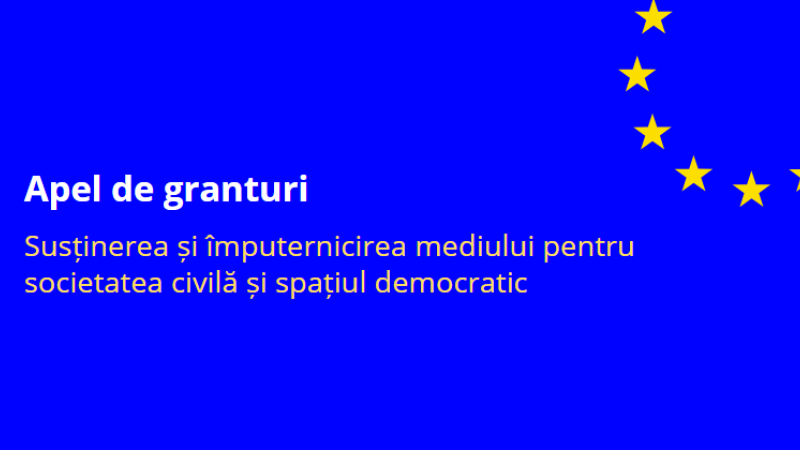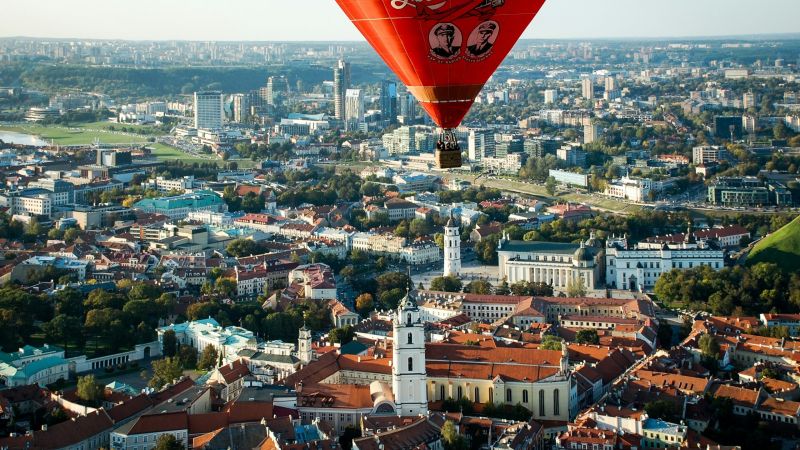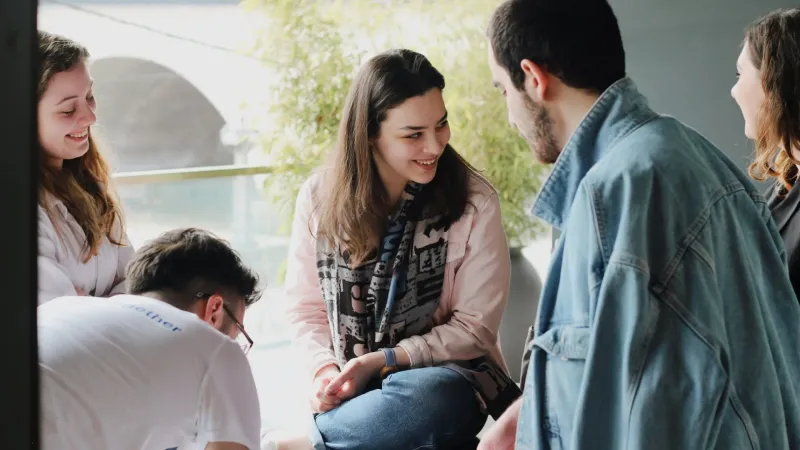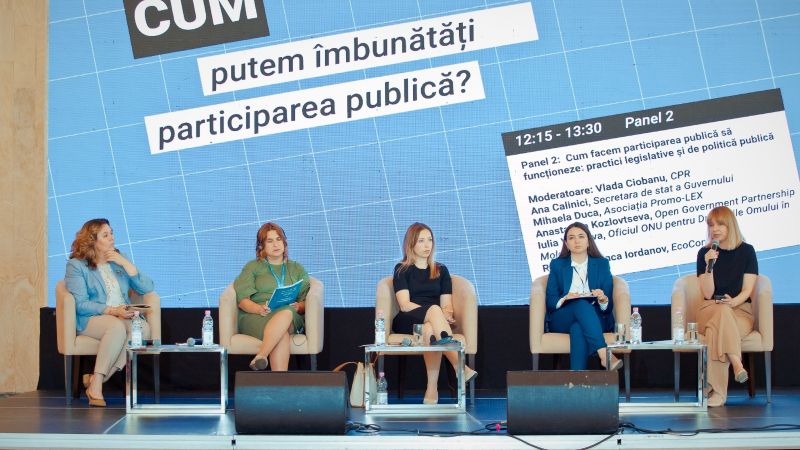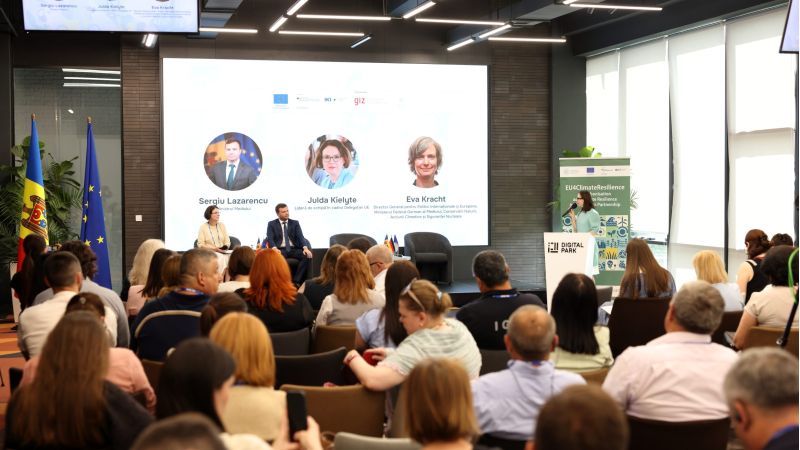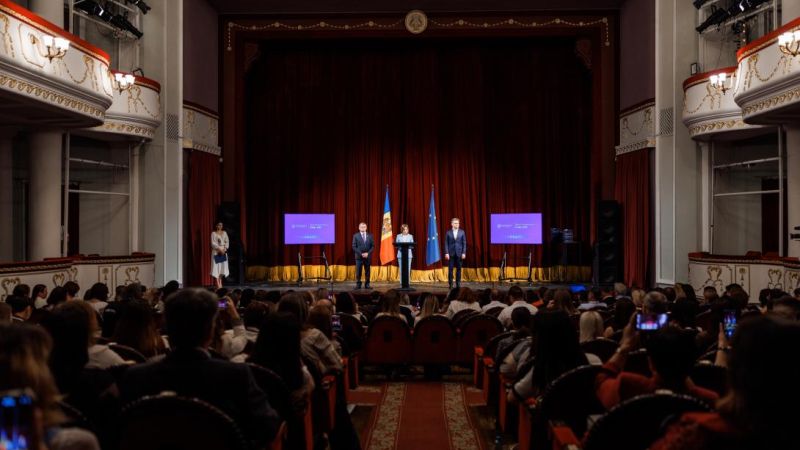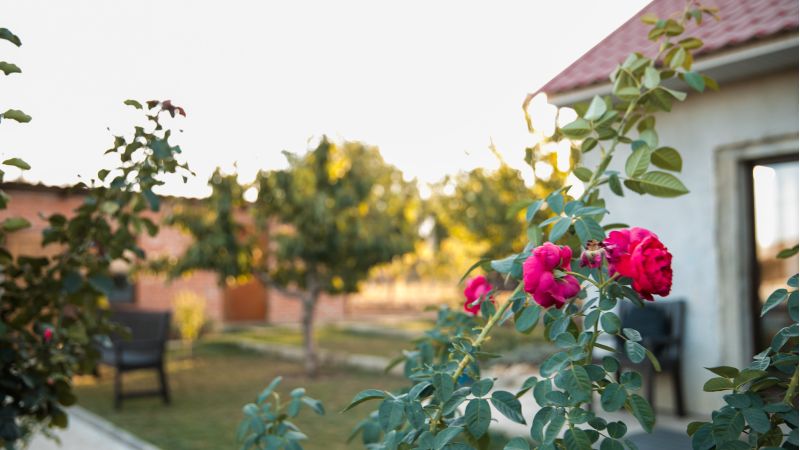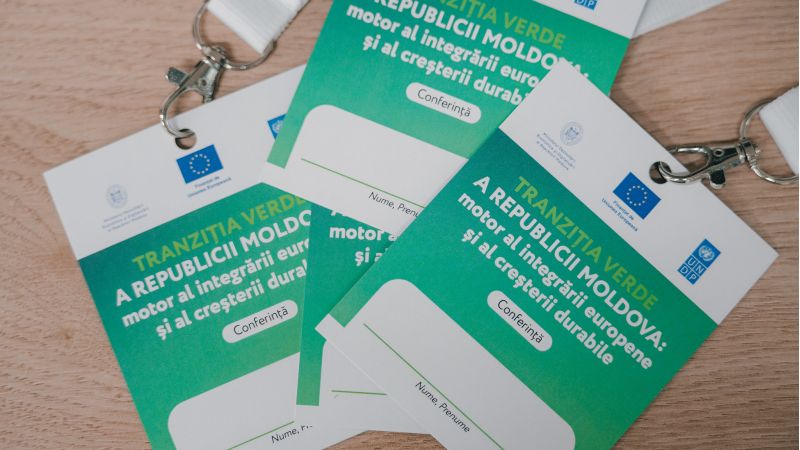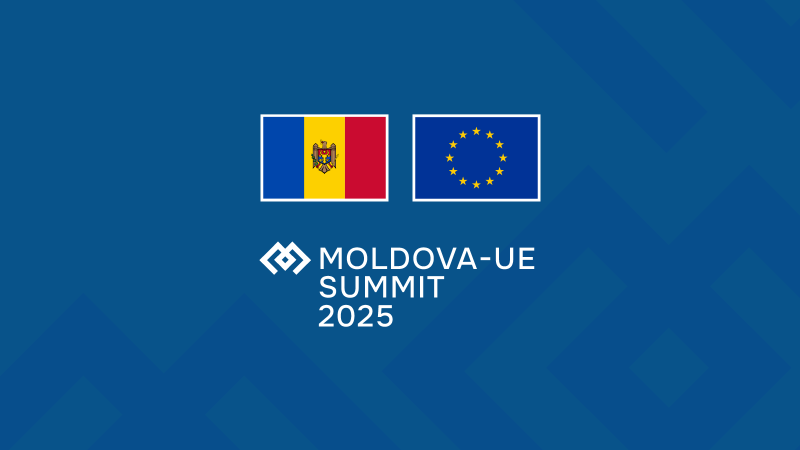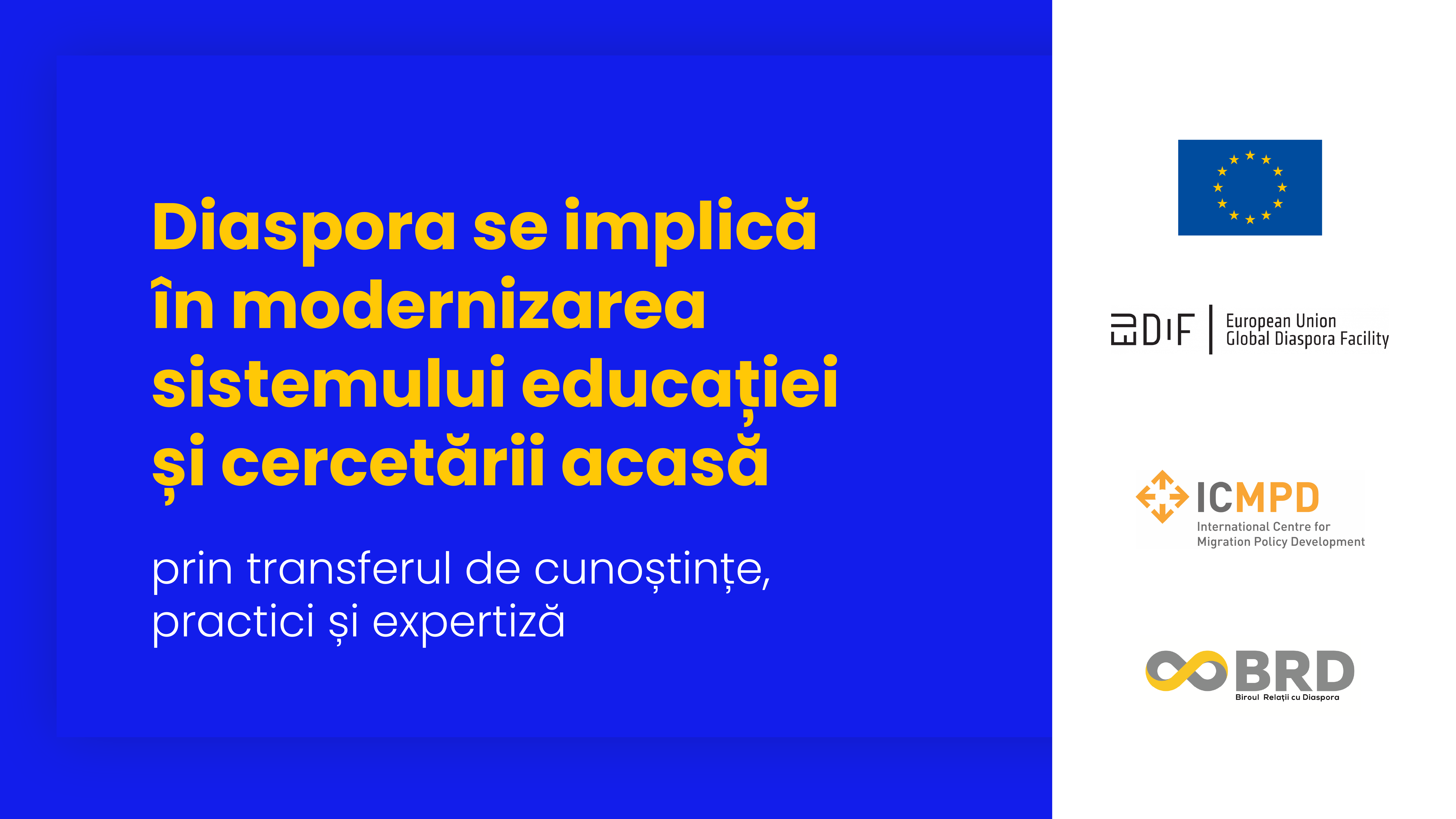
Diaspora din mai multe colțuri ale lumii se implică în modernizarea sistemului educației și cercetării acasă
Mai mulți specialiști calificați din diasporă au evaluat necesitățile și capacitățile instituțiilor naționale de învățământ superior din Republica Moldova, au analizat și propus o serie de instrumente și oportunități de colaborare, au studiat provocările și au propus soluții pentru acestea. Inițiativa vine să asigure transferul de cunoștințe, practici și expertiză din țările în care aceștia activează în țara lor de origine. Acțiunea a avut loc în cadrul unui proiect-pilot finanțat de Uniunea Europeană (UE), European Union Global Diaspora Facility (EUDiF), implementat de Centrul Internațional pentru Dezvoltarea Politicilor de Migrație (ICMPD).
În cadrul acestui exercițiu, care este o premieră pentru Moldova, au fost identificate câteva necesități, care ar putea fi acoperite de expertiza diasporei:
- consolidarea colaborărilor în cercetare, care ar presupune implementarea proiectelor comune de cercetare, organizarea vizitelor de studiu și găzduirea evenimentelor tematice axate pe dezvoltarea cercetării, inclusiv valorificarea granturilor comune;
- modernizarea predării, care țintește atragerea membrilor diasporei pentru ca aceștia să împărtășească practici de învățare;
- internaționalizarea învățământului superior, care ar include dezvoltarea parteneriatelor între universități și/sau alți actori (start-up-uri, ONG-uri din diaspora etc.) și a propunerilor pentru finanțare drept răspuns la oportunitățile internaționale pentru dezvoltarea învățământului superior.
Aceste aspecte au fost meticulos analizate și integrate într-un document complex, cu analize relevante și recomandări esențiale.
Diaspora Co-working Hub, o platformă pentru schimbul de cunoștințe și expertiză
Această inițiativă reprezintă un pas semnificativ către îmbunătățirea calității și relevanței învățământului superior din Moldova, prin cunoștințele și experiența pe care membrii diasporei le aduc cu ei. Prin intermediul acestui proiect, finanțat de UE, a fost creată o platformă pentru schimbul de idei și expertiză între diasporă și organele de resort din țară, inclusiv cu instituțiile de învățământ superior din Moldova – Diaspora Co-working Hub. Recent a avut loc prima ședință a hub-ului, care a adunat peste 40 de participanți, printre care membri ai diasporei, Biroului de Relații cu Diaspora (BRD), reprezentanți ai Ministerului Educației și Cercetării și instituțiilor de învățământ superior.
Diaspora Co-working Hub își propune să adune cât mai mulți specialiști dispuși să se implice în transferul de cunoștințe și expertiză în Moldova cu propuneri concrete pentru mai multe sectoare cheie. Astfel, în perioada următoare, BRD va anunța un apel de înscrieri pentru mai mulți profesioniști.
„Cred ca există un potențial imens în comunitatea diasporei pentru a sprijini educația in Moldova. Acestia pot aduce idei creative, cunoștințe și contacte noi. Trebuie să le oferim recunoaștere și spațiu pentru acest schimb de experiențe și idei. Restul este doar o chestiune de logistică”, a menționat Diana Hîncu, managerul de proiect EUDiF.
De la remitențe economice la cele sociale, o nouă percepție a diasporei moldovenești
Cercetările academice subliniază tot mai mult impactul extins al schimbului de cunoștințe și expertiză din diaspora către țările de origine, transformând astfel migrația de creiere într-o sursă de capital uman. Pe lângă sistemul educațional din Moldova, au fost colectate informațiile referitoare la abilitățile, cunoștințele și interesele diasporei moldovenești. Proiectul EUDiF a identificat o diasporă înalt calificată din Moldova. Peste 100 de specialiști au fost intervievați, dintre care 86% și-ar dori să se implice într-o astfel de inițiativă. 72% au identificat dezvoltarea economică a țării ca fiind un domeniu extrem de important în care ar trebui să fie direcționată expertiza membrilor diasporei.
„Dacă vrei o schimbare și o îmbunătățire a bunăstării țării tale, atunci ar trebui să faci parte din acea schimbare! Mulți membri ai diasporei sunt migranți care poseda cunoștințe și pentru o țară a cărei economie se confruntă cu dificultăți și unde o treime din populație se află în străinătate, cea mai mare resursa devine oamenii săi”, a subliniat Dorina Baltag, expert coordonator din diasporă. Dorina a acumulat peste 12 ani de experiență profesională în cadrul universităților din Regatul Țărilor de Jos și Regatul Unit, iar în prezent este cercetătoare nivel postdoctoral la Institutul pentru Diplomație și Guvernanță Internațională din cadrul Universității Loughborough din Londra.
Au fost stabilite legături cu experți născuți în Moldova, dar care locuiesc acum în țări precum Regatul Unit, Franța, Germania, Belgia, Danemarca, SUA și Canada, fiind stabiliți în străinătate de la 8 până la 20 de ani. Majoritatea dintre ei sunt angajați în sectorul privat, universități sau instituții de cercetare, oferă servicii de consultanță, sunt proprietari de companii, lucrează în sectorul societății civile sau sunt funcționari publici angajați în diverse agenții naționale. 70% dintre persoanele contactate sunt femei și 30% bărbați.
De ce membrii din diasporă sunt dispuși să se implice?
Implicarea lor nu se limitează doar la legăturile identitare sau sentimentale cu țara, ci vine din dorința lor de a aduce schimbări pozitive folosindu-și cunoștințele și experiența profesională într-un mod practic și concret. Indiferent de nivelul lor de educație, toți apreciază oportunitatea de a împărtăși know-how-ul lor cu comunitățile profesionale din Moldova, care ar putea aduce beneficii pentru comunitatea lor și pentru Republica Moldova în ansamblu.
EUDiF este un proiect-pilot finanțat de Uniunea Europeană (UE) și implementat de Centrul Internațional pentru Dezvoltarea Politicilor de Migrație (ICMPD). EUDiF are misiunea să încurajeze dezvoltarea unui ecosistem al diasporei informat, incluziv și cu impact, prin cercetare și acțiune, lucrând împreună cu țările partenere, organizațiile diasporei din Europa, UE și statele sale membre.
Resurse utile
Raportul privind profilul diasporei moldovenești înalt calificate în sectorul educației
Implicarea diasporei și capitalul uman. Scheme de transfer de competențe pe termen scurt
